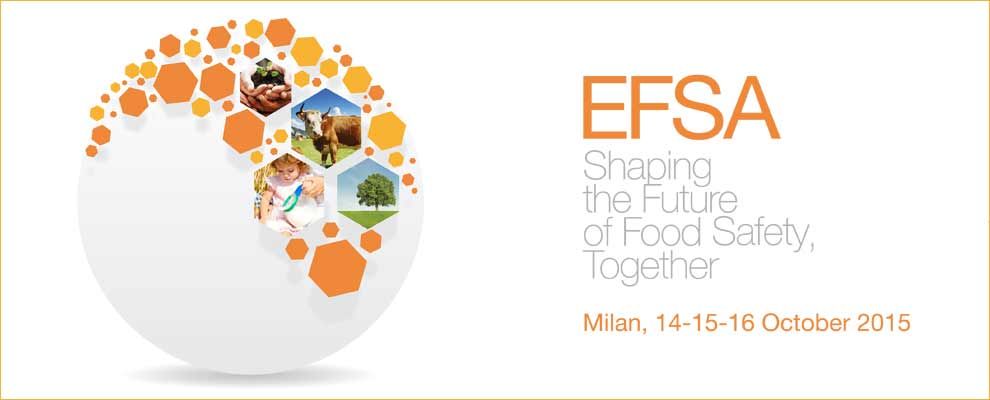
EFSA’s scientific conference has yielded a rich reservoir of ideas and inspiration that will help the Authority and the wider risk assessment community to meet the challenges of the coming years. That was the message with which Tony Hardy, Chair of EFSA’s Scientific Committee, kicked off the final session of the conference in Milan.
Transparency, cooperation and the need to strengthen public engagement in risk assessment were the recurring themes of the conference, “Shaping the future of food safety, together”, which was attended by 900 people from 70 countries over three days. Hundreds more around the globe followed proceedings via live web streaming, which was available from every plenary session and breakout meeting.
Delegates examined pressing topics such as open data, weighing uncertainty in risk assessments, emerging issues in animal and plant health, and developing expertise for the future.
‘Diversity of topics’
Prof Hardy’s remarks were echoed by Sue Davies, Chair of EFSA’s Management Board, who said the “brilliant” conference had brought together a broad range of perspectives. “It’s rare to find a conference addressing such a diversity of topics, from technical issues to broader themes related to social science. We’ve had researchers, NGOs, assessors, regulators and more. We’ve shared information and made connections.”
Ms Davies added that the conference was particularly timely as EFSA is currently developing its strategy for 2015-2020, which will set the Authority’s priorities for the coming years. “All the sessions dissected subjects that are closely linked to EFSA’s objectives for the next five years, such as enhancing public engagement in risk assessment and making our work as transparent as possible,” she said.
Focus on the future
The final meeting of the conference, which appropriately took place on World Food Day, was also addressed by Vytenis Andriukaitis, the EU Commissioner for Health and Food Safety, who said: “I have been impressed by the scope of topics you have covered this week, all of which are highly relevant to the European Commission’s priorities in the area of food safety.
“I am sure that the knowledge and thoughts exchanged here will contribute to progress in risk assessment.”
He added: “The EU enjoys high levels of food and feed safety, as well as animal and plant health, but we cannot take this situation for granted. It is to EFSA’s credit, therefore, that your conference focused on the future of risk assessment.
“I know that I can rely on the crucial expertise of EFSA.”
Mr Andriukaitis also highlighted that the European system of risk assessment relies on the continued availability of highly qualified scientists.
“The EFSA model, which I believe is a very attractive one, depends on the generosity and foresight of Member States,” he said. “So I would like to make a plea to Member States to maintain this model and redouble their efforts in recruiting and training the next generation of risk assessors.”
Video recordings of the conference will be available on the EFSA website in a few days’ time. The main discussions and conclusions will be published in a special edition of the EFSA Journal.
